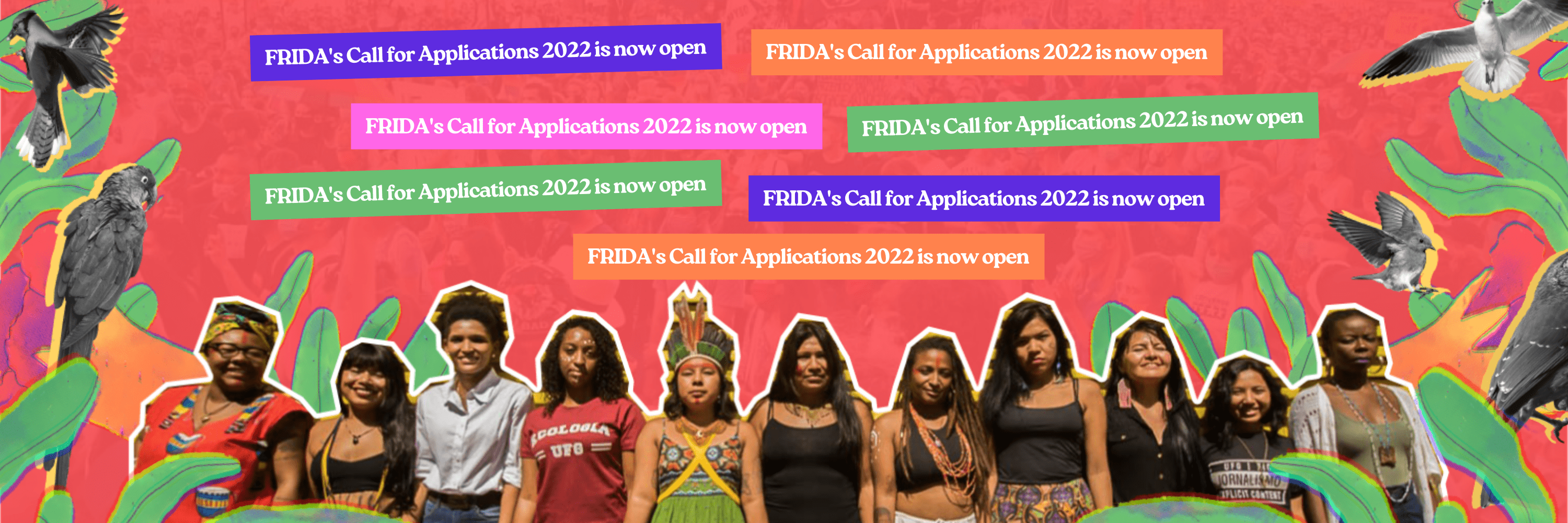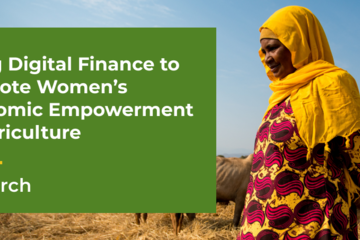Feed
-
Displacement and Belonging: Lessons from the Indian Ocean and Beyond/ Circulations et appartenancesDisplacement and Belonging :Lessons from the Indian Ocean and BeyondIn Honor of Pier Larson Circulations et appartenances :leçons de l’océan Indien et au-delàEn l'honneur de Pier Larson Online international conference organized by:Klara Boyer-Rossol (CIRESC and BCDSS, Bonn University),Jennifer Cole (The University of Chicago),Tasha Rijke-Epstein (Vanderbilt University),Samuel Sanchez (Université Paris 1 - Panthéon Sorbonne),Dominique Somda (Huma - University of Cape Town). Thursday 5 May 2022 & Friday 6 May 2022 PROGRAMMEAbstracts Register hereBy: Raquel AcostaTuesday, Apr 26, 2022CULTURE AND SOCIETY

-
AAP Public Dialogue “Peace and its Reflection in African Art”AAP will be hosting our next Public Dialogue “Peace and its Reflection in African Art”, Wednesday, April 27th at 8:00am- 9:30am EDT. This dialogue session will be co-hosted by AAP consortium member -Université des Lettres et des Sciences Humaines de Bamako. Art is a reflection, a mental representation of an object, an idea, or a concept whether it be abstract or concrete. Therefore, when we pass any judgment on a work of art based on the image or the idea that we have of this object and outside of its historical, geographical, social, or ethnic context, it is likely that this will be a subjective judgment and often based on prejudices. Unfortunately, contemporary artistic production on the African continent is often focused on and reflects fixed concepts and structures "imposed" by the West. It no longer responds to the aesthetic concerns of the populations who, in principle, should generate it. This panel will bring together specialists focused on art and peace within Africa. This subject is especially timely given the current context of global upheaval. To register please visit: https://msu.zoom.us/webinar/register/7716492601543/WN_FyyKDq_zT6ug4vxHi_ApEw?fbclid=IwAR0sa0-aPf6sGkp5GbY8ScMZsEJZwIhPAz6K1QEOWqURxqhngLA_tYc9mRcBy: Raquel AcostaTuesday, Apr 26, 2022OTHER

-
FRIDA's 8th grant cycleApplications from young feminist groups from all majority countries to apply. More information is here.By: Rajalakshmi Nadadur KannanMonday, Apr 25, 2022CULTURE AND SOCIETY+2
 No Preview Available
No Preview Available -
New edited collection on LGBTQI+ displacement in and from East AfricaSince the early 1990s, political, social and economic instability in East Africa,1 including long-running conflicts in Sudan, Somalia, Ethiopia and Burundi, has produced high rates of displacement. Movement within and from the region has led to substantial refugee populations being housed in Kenya, Tanzania and Uganda, as well as a large diaspora of East Africans scattered across the globe. Among those leaving their countries of origin are a significant number of lesbian, gay, bisexual, transgender, queer and intersex (LGBTQI+) persons. Many are fleeing state-sanctioned violence, including arrest, prosecution and imprisonment, while others seek to escape oppressive social norms and community opprobrium, often experienced as gossip, beatings, outings, extortion, familial abuse and forced marriage. These efforts to preserve the heteronormative social order are buttressed by the expansion of colonial-era penal codes, the growing influence of anti-LGBTQI+ religious movements and the strategic use of anti-LGBTQI+ discourses by political elites looking to consolidate their power and authority. While LGBTQI+ refugees and asylum seekers in East African have recently begun to attract media attention, there is yet to be sustained academic engagement with their lives and experiences. This collection will address this knowledge gap by bringing together diverse scholarship on the drivers, impacts and consequences of displacement linked to sexual orientation and/or gender identity and expression. It will do so by exploring all aspects of LGBTQI+ migration, including displacement catalysts, mobility pathways, transit routes, migration governance, encampment policies, humanitarian interventions, resettlement challenges, integration strategies, livelihood programmes and public advocacy. By centring the experiences of LGBTQI+ East Africans who move, the collection will produce new insights into the geographical, historical and cultural specificities of a region that both produces and hosts individuals fleeing homophobic and transphobic persecution. This will be an interdisciplinary publication, and we invite submissions from all academic fields, including migration studies, gender studies, border studies, religious studies, media studies, legal studies, literary studies, public health, history, sociology and anthropology. We also welcome abstracts that consider the lives of LGBTQI+ East Africans in the diaspora and the impacts of LGBTQI+ East Africans on global, regional or local protection mechanisms. Those working outside of the academy (humanitarian workers, legal practitioners, service providers, etc.) are welcome to submit abstracts of a scholarly nature. Possible topic areas include, but are not limited to, the following: The state of research: Trends in LGBTQI+ migration research and knowledge gaps. Theorising LGBTQI+ displacement: Looking beyond South-North migration trajectories, rethinking movement, boundaries and borderlands, challenging European 'exceptionalism' and so on. Methodological tensions: Unpacking the ethics and practices of researching and representing LGBTQI+ mobilities, the use of arts-based methodologies, decolonial approaches to migration research and so on. Law and justice: Making sense of legal challenges and opportunities relating to LGBTQI+ migration, including local, regional and international protection mechanisms, state responses to decriminalisation and so on. Structures of asylum and migration: Encampment, waiting, documentation, border controls, online fundraising campaigns, illegality as orientation, the finitude of language and so on. Documenting, archiving and disseminating knowledge: Partnerships (civil society, government, policy-makers, etc.), research uptake beyond the academy, data security, keeping LGBTQI+ communities safe when 'going public' and so on. Representations in film, literature and media: Reflections on how LGBTQI+ displacement in/from East Africa is produced, discussed and circulated through creative works. The role of religion and culture: The relationship of institutions, practices, networks and discourses with migration, with faith as a mediator of belonging or dispossession. Research in action: Empirical findings from recent studies on LGBTQI+ displacement in the region. Prospective authors are asked to submit an abstract (500 words max) and a short bio to queerdisplacementea@gmail.com by 1 April 2022.By: Raquel AcostaMonday, Mar 28, 2022CULTURE AND SOCIETY
-
Journal for the History of Knowledge – Call for ProposalsThe Journal for the History of Knowledge features an annual special issue, compiled by guest editors, which explores a theme central to the journal’s scope. The special issues of previous years have been Histories of Bureaucratic Knowledge (2020) and Histories of Ignorance(2021). We are currently accepting proposals for the 2024 Special Issue. Proposals should contain the following: A description of the proposed theme (1500-2000 words) highlighting its significance for the history of knowledge A table of contents (typically 8-12 articles of 8000 words) Abstracts of the articles Two-page CVs of the editors; short biographies of the contributors An outline of the production process up to manuscript submission. All manuscripts must be submitted to the journal by May 2023. Please send your proposal to: jhokjournal@gmail.com Proposal deadline: 1 May 2022Notification of acceptance: by 30 July 2022 After submission, all manuscripts will go through a process of peer-review, author’s revisions, and copy-editing. JHoK is a diamond Open Access journal, at no charge to the authors. Details of the journal’s scope and a full list of the editorial team and advisory editorial board is available on the journal's website.By: Raquel AcostaMonday, Mar 28, 2022EDUCATION
No Preview Available -
Call for Papers: Global Village Review-COVID-19 and Global AfricaTheme: COVID-19 and Global Africa For its maiden issue, the editors of the Global Village Review are inviting scholars, essayists, and book reviewers to submitscholarly articles, critical essays, or book reviews on topics that center around the wide variety of issues that impact COVID-19 has had on Africa and peoples of African descent, globally. We encourage submissions from researchers, educators, artists, and policymakers from around the world in all disciplines, in both the social sciences and the humanities.Suggested Topics Status of Vaccine Science in Africa/Vaccine Hesitancy Among African-Americans/Reasons for Low COVID-19 Mortality Rates in Africa/Impact of COVID-19 on African Economies/Impact of COVID-19 on Caribbean Economies/Virtual Learning Experiences at African Institutions under COVID-19/Impact of COVID-19 among African Diasporans in Latin America/Impact of COVID-19 on African Diaspora in Britain/Plight of Front-Line COVID-19 Healthcare Workers in the African Diaspora/Impact of COVID-19 on Tourism in Global Africa/Post-COVID-19 Recovery in Africa Submission Guidelines:Reference Style: APA (7th Edition):https://libguides.jcu.edu.au/apaLength of Submissions:Articles & Essays: 5000-8000 wordsBook Reviews: 1000-3000 wordsAuthor’s Bio: Brief (1-3 lines)Abstract Submission: 75-100 wordsEmail Address for Submissions and Inquiries:mwwilliams91@webster.edu Submission Deadline: May 1, 2022 Journal Profile The Global Village Review (GVR) is an online, bi-annual, peer-reviewed journal, designed to provide critical analysis ofglobal affairs from an Africana-centered perspective. Its primary focus is to examine matters of global significance affectingthe African World. GVR consists of three parts: research articles, critical essays, and book reviews. Based on a double-blindreview process, the editorial policy of GVR will ensure that all submissions, regardless of political leanings, will begiven equal consideration. To learn more: Call for Papers: Global Village Review-COVID-19 and Global Africa | H-Africa | H-NetBy: Raquel AcostaMonday, Mar 28, 2022CULTURE AND SOCIETY+1
No Preview Available -
Using Digital Finance to Promote Women’s Economic Empowerment in AgricultureDigital financial services have the potential to positively affect women’s economic empowerment, despite limitations that restrict their access to and use of financial resources and services. Building on the Digital Finance and Women’s Economic Empowerment in Beyond Production Roles in Agriculture and Food Systems report published by the Feed the Future Advancing Women’s Empowerment Program, this webinar will invite participants to learn about promoting women’s economic empowerment in agriculture using digital financial services. Presenters will share out the findings, conclusions, and recommendations from the report, highlighting through a fireside chat the lessons learned and best practices from implementers and service providers working in the DFS space, and provide time for participants to pose questions to the presenters. To learn more/Register: Using Digital Finance to Promote Women’s Economic Empowerment in Agriculture | AgrilinksBy: Raquel AcostaMonday, Mar 28, 2022AGRI-FOOD SYSTEMS


Leave a comment